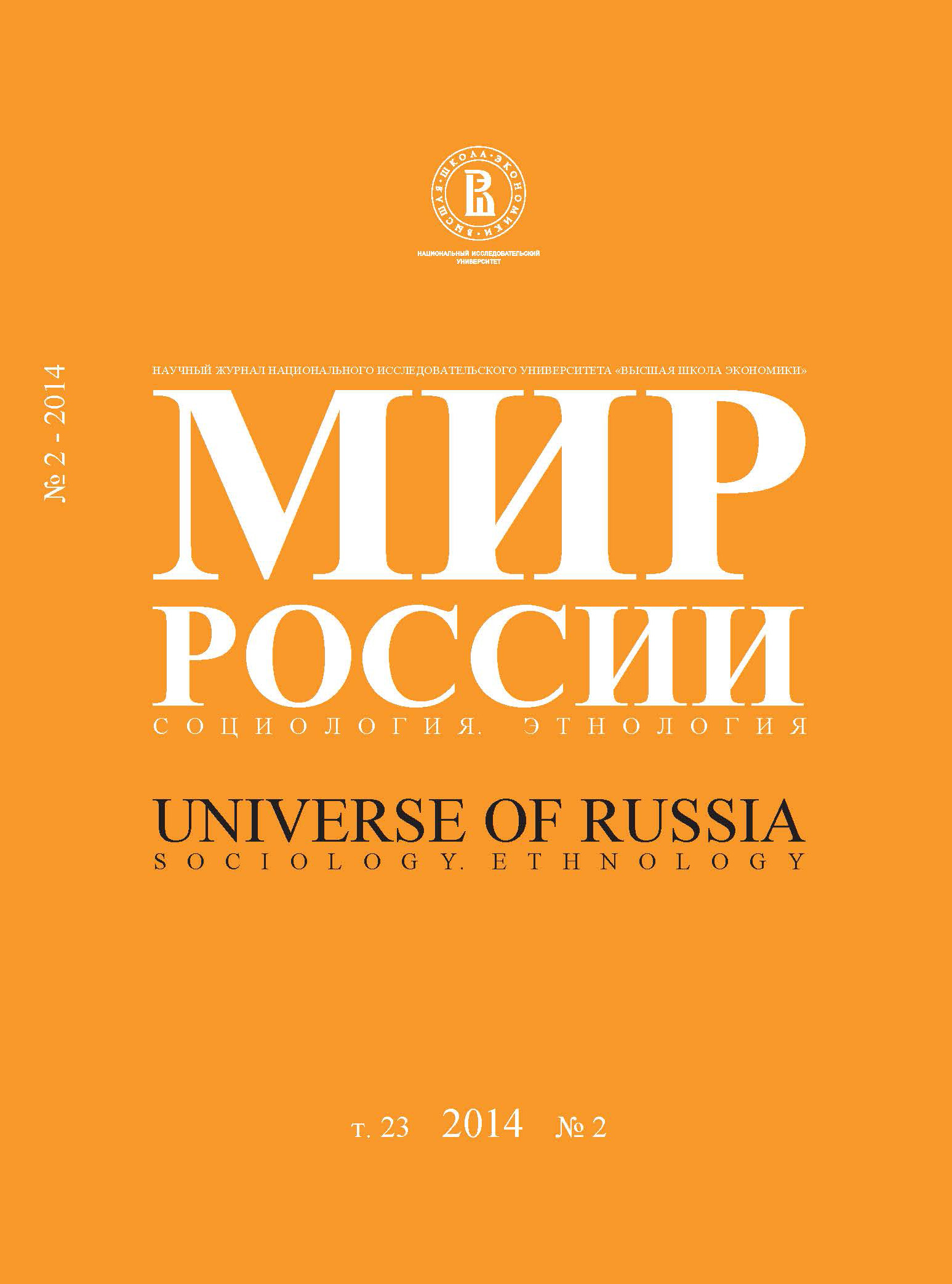Schools and Socioeconomic Standing of Russian Families as Competing Factors in Promoting Social Inequality in Russia
Abstract
Alexey Uvarov — Post-Graduate Student, Faculty of Economics, National Research University ‚Higher School of Economics‚. Address: 20, Myasnitskaya St., Moscow, 101000, Russian Federation. E-mail: alexisouvarov@gmail.com.
Gordey Yastrebov — Senior Lecturer, Sub-department of Economic Methodology and History, National Research University ‘Higher School of Economics". Address: 3, Bolshoi Trekhsvyatitel’skii St., Moscow, 123022, Russian Federation. E-mail: gordey.yastrebov@gmail.com.
This article is yet another attempt to address the issue of educational inequality in contemporary Russia. By drawing on the data from the ‘monitoring of education markets and organizations’ survey (MEMO), carried out by the National Research University Higher School of Economics and the Levada-Center in 2011, we evaluate the relationship between the academic performance of Russian schoolchildren and the socioeconomic standing of their parents.
Although the problem itself is not so novel, our research is one of the few robust attempts to establish this relationship in Russia. Our aim is to understand whether the current system of general secondary education in Russia promotes the equalization of chances in terms of successful completion of school curriculum among children with different social backgrounds. Or, if it happens the other way around, i.e. leading to perpetuation of social advantage for the more privileged social groups. To explicate this relationship, we make use of hierarchical regression models, where at the first level we consider the differences between schoolchildren and their families, but at the second, we distinguish between different educational institutions.
Our findings suggest that a many differences in individual academic performance, indeed, result from inequality of socioeconomic standing between families. At the same time, the differences in academic performance are poorly related to school resources, even though the educational institutions in our sample feature substantial inequality with respect to the qualification of teachers and access to finance. We believe that this circumstance is indicative of the relatively low capacity of Russian schools to effectively promote equal opportunity.






